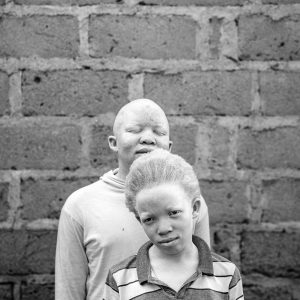Agrarian reform and queer rights go hand in hand
The Landless Workers’ Movement in Brazil fights for LGBTQIA+ people who are being murdered at an alarming rate in a country besieged by racism, capitalist domination and exploitation.
Author:
11 June 2021

Brazil has one of the highest murder rates of LGBTQIA+ people in the world, and this has been worsened by the profound political crisis plaguing the country.
On paper, living openly queer in Brazil looks favourable. Same-sex unions were legalised in 2013 and the Supreme Federal Court ruled in June 2019 that discrimination based on gender identity and sexual orientation was akin to racism. But these legal victories do not translate to inclusion, safety or representation.
More than 2 000 LGBTQIA+ people were murdered between 2014 and 2019, with 329 killed in 2019 alone. Of these, 124 victims were transsexual. Globally, 3 664 murders of people in the LGBTQIA+ community were reported between 2008 and September 2020, with 1 520 trans murders in Brazil. Last year was one of the deadliest on record for trans and gender-nonconforming people worldwide.
Related article:
For years, socialist agrarian reformers the Landless Workers’ Movement (MST) has defended the lives and existence of its LGBTQIA+ militants against conservative, fascist and queer-phobic thinking, which has led to the murders of peasants, indigenous and Black people in Brazil. The MST formally recognised the LGBT Collective into its structure in 2018, approving it as a member of the movement’s national and state boards.
Alessandro Santos Mariano, a member of the MST’s national board representing the LGBT Collective, says the eradication of private property and socialisation of the means of production cannot be seen as the horizon of socialism.
“We need to … fight against the ideology that shapes our bodies and our sexualities according to the needs of capitalist accumulation… The socialist struggle must seek human emancipation, which will only be possible if all forms of oppression are destroyed, including those that weigh and stifle gender and sexuality,” he says.
Broadening the struggle
Having the LGBT Collective in the MST broadens the class struggle because either the existence of many working-class LGBTQIA+ people is denied or relegated to the closet, or they are raped and murdered.
“Patriarchy and racism operate to control our bodies, to make them instruments of greater exploitation and capitalist domination. In this sense, it is part of the process of human emancipation that the working class understands that its body and its sexuality [are] also the territory of the class struggle, and, therefore, of struggle against this oppressive system,” says Mariano.
LGBTQIA+ people have been part of the agrarian reform movement since the MST’s inception in 1984. Mariano says initially sexual and gender diversity was “left to the discretion and understanding of each individual, which left gaps for LGBT-phobic attitudes on the part of some militants”.
Related article:
He says raising the flag of sexual and gender diversity in the struggle for agrarian reform has been very important “because it is necessary to decipher the oppressions that we are subjected to”. The debate on sexual and gender diversity was intertwined with the People’s Agrarian Reform programme, which has been guiding the movement in new ways of caring for the land and the environment since 2014.
“Understanding these dimensions is essential for the class as a whole, because … violence and oppression operate as resources of domination and define social roles that will be assigned to us in society; jobs that we will occupy – or not – in the production chain; whether we will have access to better-paid activities or will be doomed to work without a salary; whether we are going to suffer [in] our affective bonds or enjoy healthy daily social relationships, in the family, in the community, in the movement,” he says.
Related article:
Its first seminar, The MST and Sexual Diversity, was a milestone for the LGBT Collective. Held in August 2015 at the Florestan Fernandes National School in Guararema, São Paulo, it was the first national gathering of the movement that brought together its LGBTQIA+ members.
Two years later, the LGBT Collective’s first booklet on sexual diversity, The MST and Sexual Diversity: Questions for Debate, was published and expanded on the MST’s political education courses.
“The main role of the collective is to be a space for articulation, training and elaboration on the agenda of sexual and gender diversity in the MST … for the construction of territories free from exploitation and oppression, where there is no discrimination based on sexual orientation and/or gender identity,” says Mariano.
A litany of the dead
But bigoted individuals continue to target Brazilians inside and outside the MST, emboldened by President Jair Bolsonaro, a homophobe who has said that if one of his sons were gay, he would hope he would die in an accident. In 2019 he also said the Latin American country should not become a “gay tourism paradise”.
The beginning of Pride Month on 1 June marked a month since 25-year-old Lindolfo Kosmaski’s charred body was found in a car, riddled with bullets and with his hands tied. Kosmaski had disappeared on 30 April.
Three suspects aged between 20 and 39 years old who knew Kosmaski have since been arrested. Their motivation for the murder is still under investigation. But it is no surprise that they knew him. Statistics show that most LGBTQIA+ people are attacked or killed by someone they know.
The avid Corinthians fan was a homosexual peasant activist linked to the MST and the Workers’ Party, under which he ran for political office during last year’s elections.
Related article:
The MST alleged that Kosmaski’s death was a hate crime, saying he had received threats. Kosmaski was killed just two weeks before the International Day Against Homophobia, Transphobia and Biphobia, which is celebrated in more than 132 countries on 17 May.
Kosmaski worked as a chemistry and physics teacher at four rural schools in João do Triunfo municipality, and Mariano describes him as a person known for his affection and care. He shared knowledge about agro-ecological agriculture, “a banner that Lindolfo defended, along with the banner of sexual and gender diversity”, says Mariano.
He is not the only one. Two strangers beheaded Aline da Silva, an MST trans activist, on 19 August 2019 after he left a party in Pernambuco. Fernando dos Santos Araújo, a landless gay man, was executed in January this year.
“[Dos Santos Araújo] was a witness and one of the survivors of the Pau D’Arco massacre, which killed 10 landless activists on 24 May 2017. In this traumatic episode, Fernando had spent 36 hours hidden in the bush while listening to the screams of his friends and of his own partner, Bruno Henrique Pereira Gomes, one of those tortured and killed by the police in the massacre. Fernando was executed with a shot in the back of the head inside his house,” says Mariano.
Unresolved cases
March marked three years since the murder of Rio de Janeiro city councilor Marielle Franco and her driver Anderson Gomes. The case has been marred by interference and the concealment of evidence.
“The investigation of the case led to the arrest of three police officers suspected of having murdered her, which brought to light … information about militia in the criminal underworld in Rio de Janeiro but did not identify the perpetrators,” says Mariano.
Elected in 2016, Franco contributed to the formulation of bills and guidelines in defence of the rights of LGBTQIA+ people and Black women in the favelas. Mariano says Franco “raised the banner of feminism [and] human rights and criticised the military intervention in the favelas of Rio de Janeiro, the slaughter of the Black and peripheral population by the police, [and] denounced several cases of abuse of authority by police officers against residents of poor communities”.
Related podcast:
Following her death, several of the MST camps fighting for land in Brazil were named after her and continue to show resilience and resistance in the face of threats of eviction.
“Last year, the Marielle Vive camp in Valinhos [São Paulo] had to resist an eviction attempt, which was annulled by the court of law,” says Mariano.
Franco would have turned 42 on 27 July. There are many others whose cases have not received as much media attention.
“Lindolfo, who defended life and fought for rural education, agro-ecology and for the right of LGBT people to live and love without fear, was brutally murdered, and we continue to fight for justice so that his murderers are convicted, as well as the disseminators of this hatred, like … President Bolsonaro,” says Mariano.





